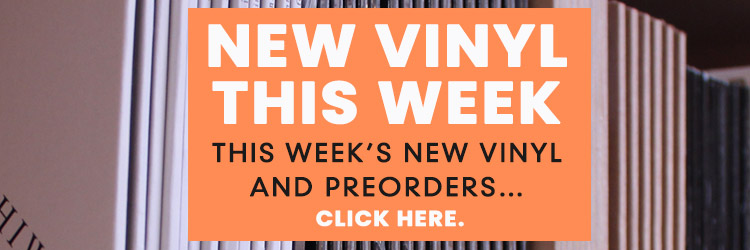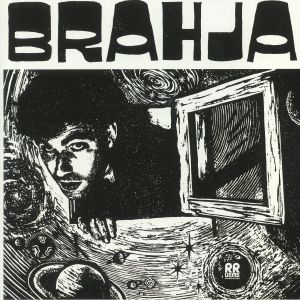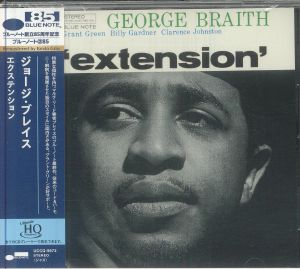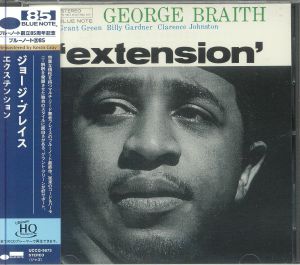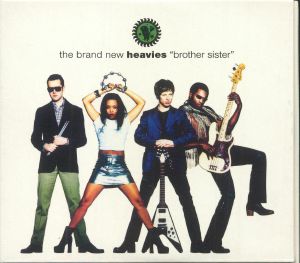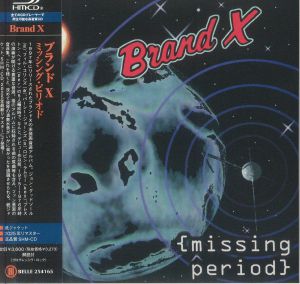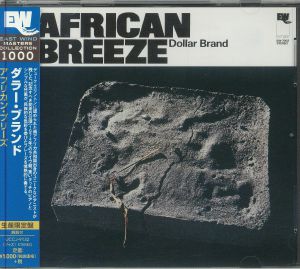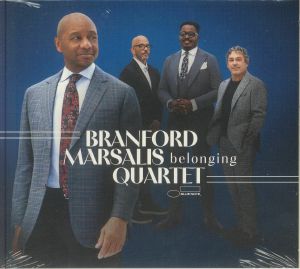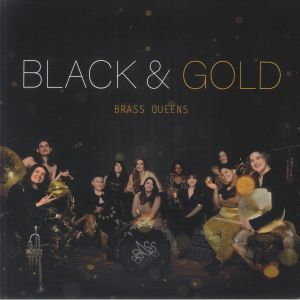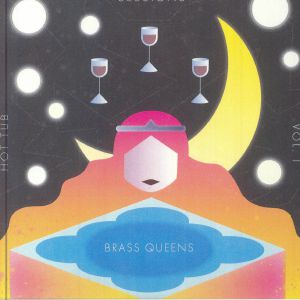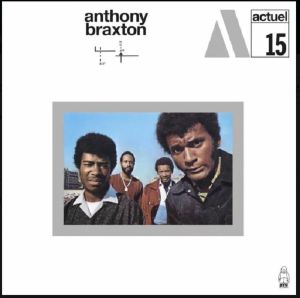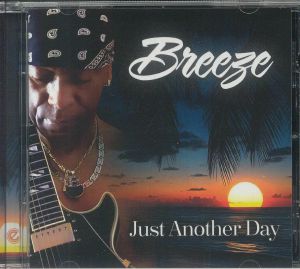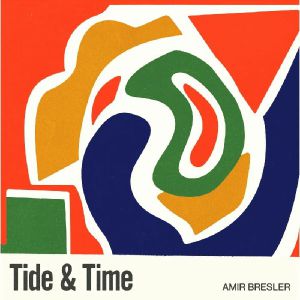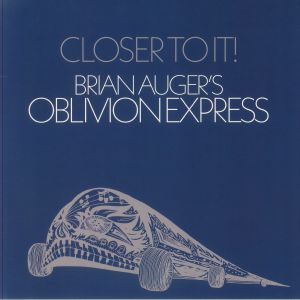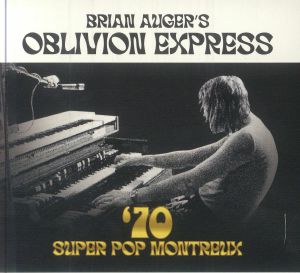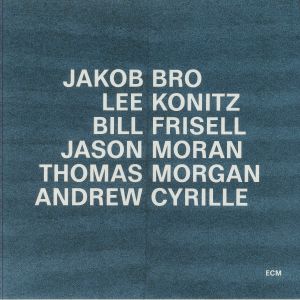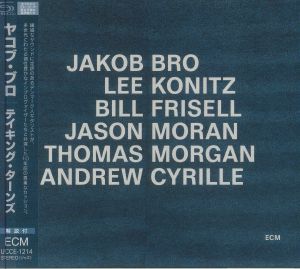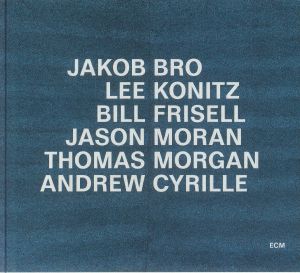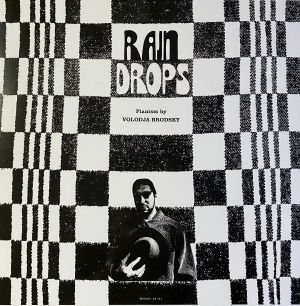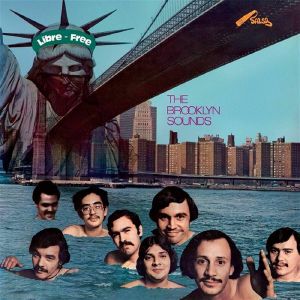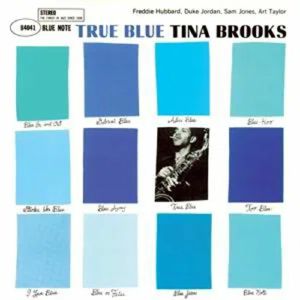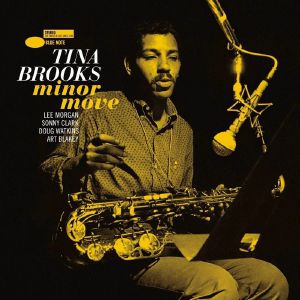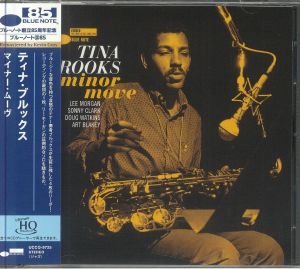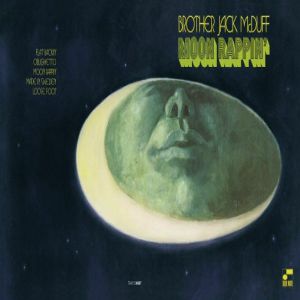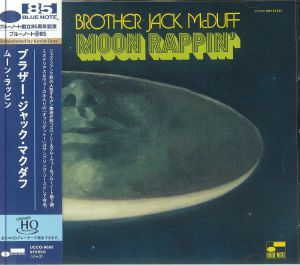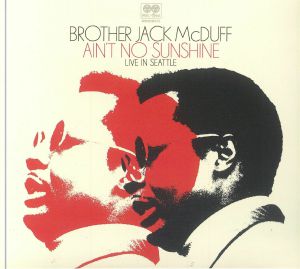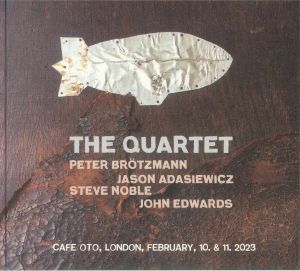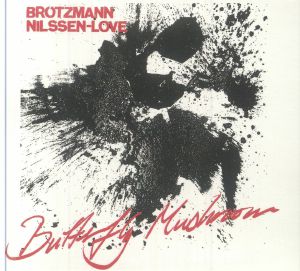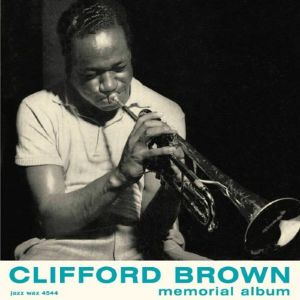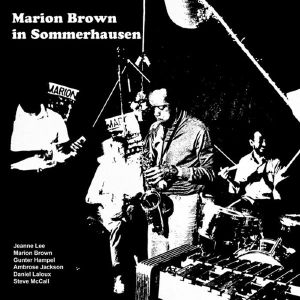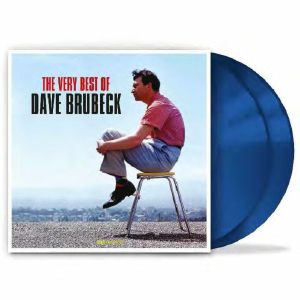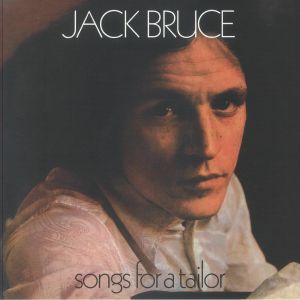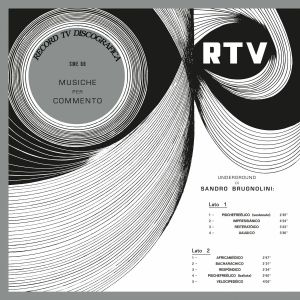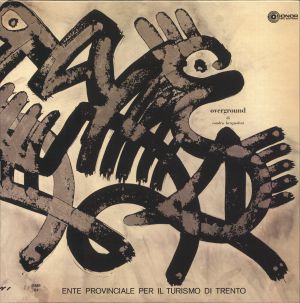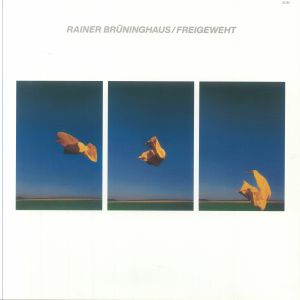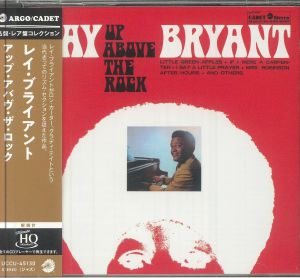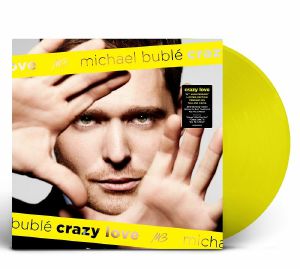Filter
Genre
Stock
Release Date
309
Not Forthcoming
4
Today
5
Last Week
10
Last 2 Weeks
47
Last Month
73
Last 2 Months
179
Last 6 Months
309
Last Year
Artist
Featured
Release Title
Price
Tags
Back catalogue: All genres
Juno's full catalogue of All genres
Alben
Review: While this may look like a reissue of a long-lost 1970s free-jazz rarity, it's actually a brand spanking new album. It is, in fact, the debut album from ever-changing collective BRAHJA, whose de facto bandleader Devin Brahja Waldman has previously collaborated with Patti Smith, Lydia Lunch and Sonic Youth's Thurston Moore. The self-titled set is pleasingly trippy, with more traditional spiritual and improvised jazz cuts nestling side by side with more experimental electrified, alt rock-influenced efforts (see "Qwikness"), delightfully out-there hybrid pieces (see "Keepers", which boasts drifting vocal chants and Terry Riley style synthesizer motifs) and spooky, early Cinematic Orchestra type fare ("Welcome To Wohlhom", "Return of the Good Enemy").
… Read more in stock $37.47
Nut City
Ethlyn's Love
Out Here
Extensiion
Sweetville
Ev'ry Time We Say Goodbye
in stock $18.02
in stock $20.57
Review: The Brand New Heavies celebrate the 30th anniversary of their landmark 1994 album, Brother Sister. Known for its groove-driven, horn-laden funk and N'Dea Davenport's powerhouse vocals, the album delves into deep jazz grooves. Released after their debut and the Hip-Hop collaboration Heavy Rhyme Experience Vol. 1, Brother Sister carved out its own unique space. Debuting at number four on the UK charts, it achieved global success, solidifying the band's Acid Jazz dominance. This newly remastered edition comes as a 2CD version that includes two newly discovered demos, 'Pocketful of Bass' and an alternate version of 'Put Yourself In My Shoes'.
… Read more in stock $12.11
in stock $33.79
in stock $42.25
in stock $9.86
in stock $46.00
in stock $13.51
in stock $40.00
Hot Tub Sessions Vol 1 (heavyweight turquoise marbled vinyl LP)
Cat: 198665 875153. Rel: 11 Nov 24
Jazz
in stock $39.16
Black & Gold (180 gram green & black marbled with gold speckles vinyl LP + MP3 download code)
Cat: 197993 391335. Rel: 11 Nov 24
Jazz
in stock $41.41
in stock $18.88
in stock $24.51
Nearness Of You: The Ballad Book (reissue) (gatefold 180 gram vinyl 2xLP with obi-strip)
Cat: UCJU 9106/7. Rel: 04 Apr 25
Jazz
in stock $80.29
Review: Neville 'Breeze' McKeith is undoubtedly a legend of Black British music - albeit one not known to the majority of listeners. His CV is impressive; as well as being a founder member of jazz-funk outfit Light of the World, McKeith was also an integral member of Beggar & Co (known for disco hit '(Somebody) Help Me Out') and currently wields his guitar for The Brit-Funk Association. Unusually, this is only his second solo album, and arrives 41 years after his first. It acts as a showcase for his virtuoso guitar playing (he switches between lead, rhythm and acoustic guitar across the set), offering a mix of jazz-funk, fusion, contemporary jazz and soul songs and instrumentals. It's mostly new original material, but wisely McKeith has also included a handful of rather good interpretations of classic cuts.
… Read more in stock $14.64
in stock $23.95
! low stock $27.33
Cat: SBM 19LP. Rel: 23 Jan 25
Funk
Review: Brian Auger's fusion of jazz, funk, and rock in this 1973 release feels as bold today as it must have sounded then, with his expressive Hammond organ weaving effortlessly through complex arrangements that balance technical mastery with emotional depth. The interplay between soulful grooves and intricate rhythms gives the music a timeless quality, particularly in standout tracks where vocal lines and instrumental passages collide in unexpectedly powerful ways. The reissue brings renewed clarity to a release that remains a touchstone for anyone exploring the boundary-pushing potential of jazz fusion.
… Read moreGespielt von: Craig Charles Funk And Soul
in stock $23.95
Cat: REPUK 1485. Rel: 21 Nov 24
Funk
in stock $16.33
Review: Recorded in 2014 but only now seeing the light of day, this long-shelved session unites an exceptional ensemble, including the legendary American jazz alto saxophonist and composer Lee Konitz, the ever-explorative guitarist Bill Frisell, pianist Jason Moran, bassist Thomas Morgan and the rhythmic backbone of drummer Andrew Cyrille. Together, they create a meditative yet dynamic set, balancing composed frameworks with fluid improvisation. The album unfolds with 'Black is All Colors at Once' , where Moran's delicate piano textures meet Bro's shimmering guitar, setting the stage for Konitz's gracefully introspective saxophone lines. Konitz, still remarkably inventive at 86, takes a rare turn on soprano sax for Haiti, a lilting, playful piece that gently sways with a hypnotic ease. 'Milford Sound' honors the avant-garde drumming pioneer Milford Graves with a free-flowing elegance, while 'Pearl River' ventures into abstraction, as Bro and Frisell intertwine their guitars into a rich harmonic fabric. One of the album's finest moments comes with 'Mar Del Plata', a wistful, sax-free waltz that echoes Frisell's most poignant work. Throughout the set, restraint and atmosphere take precedence, with every note serving the ensemble's delicate interplay rather than sheer technical display. Taking Turns is a luminous addition to Bro's catalog, revealing new depths with each listen. Thoughtful, spacious and beautifully realised, it stands as a quietly stunning moment in modern jazz.
… Read moreGespielt von: Kaoru Inoue
in stock $25.35
in stock $27.89
in stock $17.19
Review: Newly ordained keyboardist Volodja Brodsky, from Estonia, has described his music as an exploration of the transformative power of minimalism, the art form and compositional approach in which he is trained. Brodsky's second LP lacks the contextual elucidations that accompanied the first record that 2024, but we sense that this may be because the career ball is already rolling, and no further explanations may be needed for now. Raindrops is a precipitous record, as Brodsky wrenches piano and vibraphone motifs from romantic scale meanderings we didn't know possible; widescreen voicings and compound intervals help earmark these standout moments. Elsewhere, the mood is downcast, as on 'Fogbound Streets Of Maardu' or 'Raindrops'; the left hand basso is almost always moody in feel, while the right hand always produces tearful and romantic sound.
… Read more in stock $27.61
Review: Brooklyn Sounds' legendary 1972 album epitomises raw Nuyorican salsa dura with powerful trombones, unconventional piano and electrifying percussion all colliding in a scintillating fashion. This reissue of the band's sophomore release includes rare photos and liner notes and displays a confident, mature sound honed through live gigs, Blending barrio grit with Caribbean rhythm, tracks like the anthemic 'Libre Soy' and 'Ha Llegado el Momento' feature a nod to 'Moliendo Cafe' and have become dancefloor classics. Though their career was short-lived, Brooklyn Sounds' music gained global acclaim and saw them cementing their place in salsa history as pioneers of the independent 1970s New York scene.
… Read more in stock $22.82
in stock $17.75
in stock $19.15
in stock $20.00
Flat Backin'
Oblighetto
Moon Rappin'
Made In Sweden
Loose Foot
in stock $18.02
Review: Brother Jack McDuff's Moon Rappin is a bold exploration of funky and spacey soundscapes, marking a departure from his usual soul-jazz style. While the album may not adhere to traditional jazz norms, its fusion of funk rhythms with jazz improvisation showcases McDuff's versatility and willingness to experiment. Tracks like 'Flat Backin' and the title track blend jazz flutters over a funk foundation, creating a dynamic and engaging listening experience. With its heavy wah guitar and top-notch drumming, the album successfully bridges the gap between jazz and funk, offering a glimpse into the progressive musical trajectories of the era. In hindsight, Moon Rappin emerges as an unintentional precursor to the funk and jam music that would follow, with its spacey soundscapes hinting at the psychedelic funk to come. McDuff's adventurous spirit and willingness to push boundaries make Moon Rappin a noteworthy and influential record that deserves recognition for its role in shaping the musical landscape of its time.
… Read more in stock $19.71
Cat: CELV 11.2. Rel: 02 Jul 24
Jazz
in stock $27.03
in stock $42.54
in stock $28.73
in stock $31.83
in stock $20.57
in stock $21.40
Cat: CF 0032LP. Rel: 09 Aug 24
Jazz
in stock $55.21
in stock $14.37
in stock $19.15
In Sommerhausen (reissue) (LP (comes in random coloured vinyl, we cannot guarantee what you will receive))
Cat: 63677. Rel: 01 May 25
Jazz
Review: In Sommerhausen is a historical live recording from the Bavarian State Conservatory of Music in Wuerzburg, Germany, made on May 17 back in 1969. It has the talented Gunter Hampel on vibraphone, bass clarinet and percussion and is a session that also highlights the work of alto saxophonist Marion Brown, an unsung hero of the jazz avant-garde. Brown's lyrical, improvisational style is evident all across these tunes, and he is backed expertly by Hampel's rich instrumentation. Both of the deeply expressive musicians speak from the soul here while tracks like 'Malipieros Midnight Theatre' are laden with found sounds and percussion that may remind of the great Don Cherry.
… Read more in stock $33.79
Review: Saxophonist Marion Brown closed his chapter with Impulse! Records in the 1970s with this serene and vivid offering, featuring an impressive lineup of jazz talent. Drummer Ed Blackwell and bassist Reggie Workman provide a tight, responsive rhythm section, while Stanley Cowell's work on both acoustic piano and Fender Rhodes adds rich texture to the arrangements. Brown's own composition, 'Vista,' is a stand-out, bringing a blissful vibe, while the album also highlights other great selections, including a warm rendition of Cowell's 'Maimoun' and an introspective, meditative take on Stevie Wonder's 'Visions.' The tracks flow effortlessly, from the evocative 'Maimoun' and 'Visions' to the expansive, peaceful 'Vista,' before moving into the more complex 'Moment of Truth.' With 'Bismillahi 'Rrahmani 'Rrahim' and the intricate 'Djinji' rounding out the album, Brown's final statement for Impulse! remains as emotive as it was upon its release.
… Read more in stock $38.59
The Very Best Of Dave Brubeck (gatefold 180 gram blue vinyl 2xLP)
Cat: NOT2LP 298. Rel: 20 Mar 25
Jazz
Review: A generation ago, Dave Brubeck was often dismissed as a pianist obsessed with odd time signatures. Today, he is a respected figure, with his work widely celebrated, not least of course the classic 'Take Five.' While some of his 1960s material was maybe a little heavy-handed and too keen to impress at the cost of groove, Brubeck's harmonic creativity, melodiousness and swing are undeniable. His collaboration with the brilliant alto saxophonist Paul Desmond was key to his sound along with the outstanding rhythm section of bassist Eugene Wright and drummer Joe Morello. This collection, featuring tracks like 'The Duke,' 'Mr. Broadway' and 'In Your Own Sweet Way', also offers fresh interpretations of classics like 'Camptown Races' and 'Trolley Song.'
… Read more in stock $29.58
Review: Jack Bruce's classic album Songs For A Tailor receives a new official gatefold LP vinyl release, offering fans a chance to experience this seminal work in its full glory. Remastered from the original master tapes and cut at Abbey Road Studios, the album showcases Bruce's distinctively diverse style, drawing on influences from jazz, folk, classical, and rock. Produced by Felix Pappalardi, the recording sessions at London's Morgan Studios brought together some of Britain's finest musicians, including Chris Spedding, Jon Hiseman and Dick Heckstall-Smith, among others. Notably, George Harrison also made an appearance during one session. Originally released as Jack Bruce's first solo project after the demise of Cream in 1968, Songs For A Tailor achieved chart success in both the UK and the USA. Now considered a masterpiece, this LP edition faithfully restores the original artwork, offering fans a chance to revisit and rediscover one of Jack Bruce's most seminal works.
… Read more in stock $32.40
Review: Originally recorded in Rome with top-tier players like Giorgio Carnini and Giovanni Tommaso, this psychedelic library session bridges modal jazz, Latin percussion, and fuzzed-out funk. This reissue restores the 1970 cut in full, swirling through ghostly organ grooves and spiralling rhythm sections with a clarity that feels startlingly fresh. 'Psichefreelico (Sostenuto)' and 'Bacharachico' glide between dreamy lounge and scorched delay-drenched oddness, while 'Africaneidico' pulses with loose Afro-Latin syncopation. Mined from Italy's golden age of library music and remastered from mono tapes, it's a masterclass in instrumental storytellingivivid, woozy and totally transportive.
… Read moreGespielt von: Juno Recommends Jazz
in stock $26.28
Review: Sandro Brugnolini's Overground stands as a rare gem in library music and is also generally regarded as some of this artist's best work alongside his formidable Underground from 1970. Originally released on Sincro Edizioni Musicali, it served as the soundtrack to Enrico Moscatelli and Mario Rigoni's documentary Persuasione having been commissioned by Ente Provinciale Per Il Turismo Di Trento. Featuring top Italian musicians like Angelo Baroncini, Silvano Chimento, Giorgio Carnini, Enzo Restuccia, and Giovanni Tommaso, the album traverses from underground psychedelic prog rock with swirling organs and fuzzy guitars to sophisticated lounge grooves with avant-garde orchestrations. Now remastered from the original tapes, it is one to add to the racks tout suite.
… Read more in stock $34.09
Review: Freigeweht was originally released in 1981 and marked the debut of Rainer Bruninghaus, the already legendary keyboardist from Eberhard Weber's Colours and the Jan Garbarek Group. He teamed with ECM luminaries Kenny Wheeler on flugelhorn, Jon Christensen on drums and Brynjar Hoff on oboe for this project whose leader was hailed by the press at the time as "the most imaginative musician to employ minimal art in jazz" by blending influences like Steve Reich into playfully evolving constructs rather than rigid ideology. Wheeler's and Hoff's contemplative tones enhance Bruninghaus's lyrical themes here and all are driven by Christensen's dynamic propulsion. A truly evocative classic.
… Read more in stock $35.49
Review: Brute Force was a unique jazz-funk group that released their only album in 1970 on Mann's Embryo label and had it produced by the legendary Herbie Mann. They bridged the gap between heavy rhythm and blues and the emerging jazz-rock revolution led by Miles Davis and their connection to Mann was strengthened by the inclusion of guitarist Sonny Sharrock, who played on the album's first half while also part of Mann's supergroup. Featuring Richard Daniel's distinctive electric piano and his trumpet-playing brother Ted, who went on later to become a key figure in New York's downtown jazz scene, this one has a captivating and timeless atmosphere to this day.
… Read moreGespielt von: Juno Recommends Funk
in stock $21.40
in stock $20.27
Crazy Love (15th Anniversary Edition) (limited translucent yellow vinyl LP + insert)
Cat: 009362 4843269. Rel: 11 Jul 24
Pop
in stock $25.07
in stock $32.11

 USD
USD





